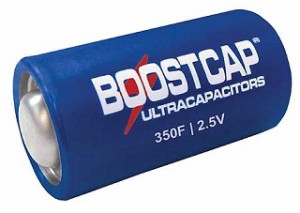Electric Transportation and Ultra-Capacitors

Gravimetric energy density, how many kWhrs/kg
Volumetric energy density, how many kWhrs/liter
Gravimetric power density, how many HP/kg
Volumetric power density, how many HP/liter
You want lots of energy (for range) and lots of power (for performance), but you don’t want it weighing down the vehicle or taking up tons of precious space.
Here’s an article sent to me by my wonderful colleague Gary Tulie (linked above), which touts a breakthrough in the subject, and here’s their website. Of course, authors of press releases have been known to embellish, so I can’t say how accurate it is, but it certainly makes us EV-enthusiasts drool.

Ultra capacitors are no substitute for batteries and batteries are no substitute for ultra capacitors. Their characteristics are very different.
From the link:
““There is no reason why we shouldn’t be able to drive 1,000 miles in an electric vehicle. ‘Range anxiety’ is holding us back. The material that Capacitor Sciences has developed has the potential to power electric vehicles as well as to provide residential, commercial and utility-scale energy storage.””
It will be interesting to see whether it will be possible to develop ultra capacitors with an energy density comparable to batteries as the article implies may be possible.
Very few people would drive 1,000 miles in one day. If hotels, motels, and restaurants had adequate charging facilities, it is unlikely that a significant percentage of people would be put off by the 1,000 mile limit. However, some who live in apartments might be put off by the inability to recharge at home.
There are presently companies that sell an accessory to allow you to charge an EV wirelessly: https://www.pluglesspower.com/ regardless of the hype it is not the first system. It is also anticipated that we will be able to charge vehicles wirelessly while they are moving and this will perhaps be the eventual trend. It is only a matter of political will and investment in infrastructure. http://www.gizmag.com/uk-electric-highways-trial/38897/
Here is a fellow on Youtube that has been swapping out the lead acid battery in his car with ultracaps that he has built. It makes for very interesting viewing: https://www.youtube.com/watch?v=GPJao1xLe7w&nohtml5=False